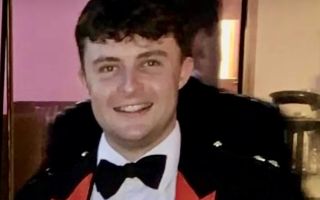Defence minister orders review into SAS hero Paddy Mayne's denied Victoria Cross
In a dramatic development in Parliament, a defence minister has pledged to review the evidence behind calls to award a Victoria Cross to Lieutenant Colonel Blair "Paddy" Mayne, one of the legendary founding members of the SAS.
Veterans Minister Al Carns confirmed the Honours Committee would now conduct a full "calculated review" of the wartime records and historical recommendations surrounding Mayne's service.
This comes after renewed pressure from MPs and the emergence of new documents pointing to an administrative error in the original decision.
"There's speculation that proper processes were not followed," Mr Carns said in the Commons.
"But under the exceptional circumstances of this debate, I will ask the Honours and Awards Committee to review the evidence and look to find a decision… It's time to provide an answer once and for all."
The ministerial-ordered review marks the most significant step yet in correcting what many see as a historic injustice.
Mayne, a highly decorated war hero who volunteered at the start of the Second World War and later joined the elite Commandos before helping to form the SAS, received the Distinguished Service Order (DSO) four times.
However, historians argue that one of those citations was originally intended to be a Victoria Cross – until a clerical mistake saw it downgraded.
Historian Damien Lewis told BFBS Forces News that he "firmly believes" Paddy Mayne deserves the Victoria Cross.
"The new documents that have emerged over the past few weeks point to a very simple and basic error of fact by those making decisions on the Victoria Cross," he said.
"The rules of the VC state that it should be a 'signal' act of valour – meaning a unique and impressive act.
"But those reviewing the recommendation appeared to misread or misinterpret this and came to believe it required a 'single' act of valour — a lone action."
Mr Lewis continued: "Any number of Victoria Crosses, including those awarded at Rorke's Drift, were given for collective efforts by soldiers acting as part of wider units.
"In Mayne's case, during the ambush near Oldenburg in April 1945, he heroically drove his Jeep into enemy fire time after time to rescue wounded comrades.
"He had Sergeant John Scott on the machine gun at the back of the Jeep providing covering fire. So yes, he wasn't alone – but the act itself was still extraordinary.
"The men he rescued repeatedly said that had it not been for Mayne, they would have been captured or killed. And in April 1945, capture by the enemy often meant certain death.
"This inconceivable mistake needs to be corrected."
Cross-party support
Veterans and politicians from across party lines agree. DUP MP Jim Shannon described Mayne's actions as "the stuff of legends" in his early day motion to Parliament.
"When we were boys in Newtownards and Ballywalter, we looked up to him. He was a hero to many of us even then," Mr Shannon said, referencing Mayne's Northern Ireland roots.
Ulster Unionist MP Robin Swann praised Mayne's leadership in shaping "one of the most elite fighting forces in the world", while Labour MP Alison Hume – a former screenwriter – highlighted how the BBC's SAS Rogue Heroes had introduced his story to a new generation.
"Jack O'Connell brings him to vivid life," Ms Hume said. "The cast thought they were tough, filming in 50°C heat in the Sahara – until they were reminded the real SAS had no hotel, no cold beer, and no safety net."








